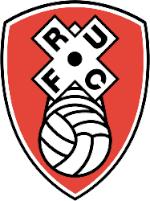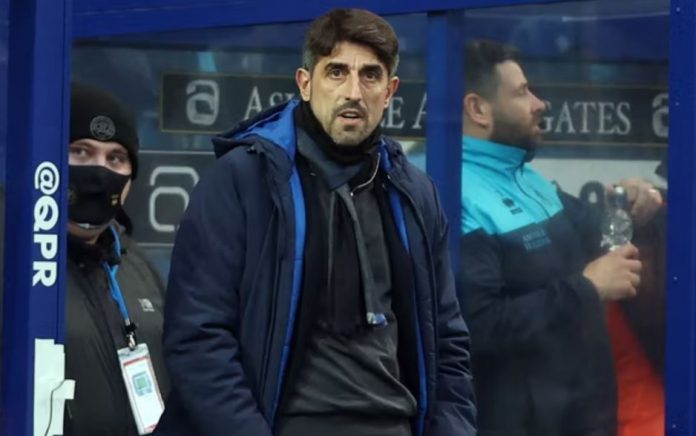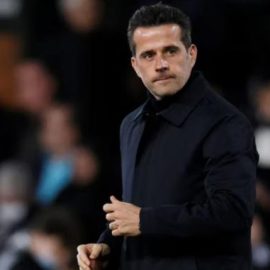As Richard Scudamore and The Premier League continue their campaign for a money spinning 39th fixture abroad, members of England’s Football League go about their daily lives, more concerned with the salient issue of survival.
In the same month the Premiership big boys drooled over the prospects of earning an additional £5m a season for playing overseas, AFC Bournemouth became the latest Football League club to enter administration. Such events serve as a painful reminder to all those who love the beautiful game, that never has the divide between football’s haves and have not’s been as great.

In contrast, The Football League’s latest television package, sold to Sky and BBC in December, will be worth £264m between 2009 to 2011. This works out at just over £1.2m per Football League club per season, with most of that amount likely to go to Championship sides. The prospects for Leagues One and Two therefore, seem particularly grim.
Rock Bottom

In early 2006, Rotherham announced it was trading at a loss of £140k a month and with no tangible assets, needed a £1m injection to survive until the end of the season. Fans set up the ‘Save our Millers’ fund, which raised this capital, along with help from a consortium of local businessmen and Yorkshire rivals Sheffield United, who supplied two players to the club on loan, but continued to pay their wages. Rotherham were relegated from League One in 2006/07, unable to overcome a ten point deduction imposed by the Football League for financial irregularities that season. A similar punishment awaits should they go into administration this campaign and with it, surely their chances of promotion back to League One (Rotherham are currently fifth in League Two).
If an administrator is called in at Millmoor, Rotherham would be the fourth Football League side to suffer a point deduction due to financial issues this season. Leeds United began the campaign on minus 15, after breaking league rules on insolvency, while Luton Town and AFC Bournemouth have both been docked 10 points for entering into administration. Such punishments appear harsh, given the sad reality of modern day football is that most clubs outside the Premiership operate on a loss.
Tottenham Hotspur were able to overturn a 12 point deduction and FA Cup bad in the High Court in 1994, having been convicted of making illegal payments. They paid a £1.5m fine instead, finished seventh in the table and got to the FA Cup semi-finals as a result. Fans of Leeds, Luton and Bournemouth must feel it’s a case of one rule for one, one rule for another.
Going, Going, Gone?
It was only last summer that former Football League side Scarborough was wound up with debts exceeding £2.5m. Given the financial situation clubs in the Football League are, fears are abound that there could be further casualties. AFC Bournemouth are reportedly £4m in the red, Luton £8m while Leeds United had debts totalling £35m when they entered administration last May. Even Cardiff City, in the top ten of the Championship, have a £25m deficit to their name.
Brighton and Hove Albion supporters trust set up a website called Clubs in Crisis, following the exile from their old Goldstone Ground and subsequent struggle playing without a permanent home stadium. The site has generated funds to keep Brighton alive and is now used to assist other financially struggling football clubs. The plight of a total of 41 current Football League sides are listed on http://www.clubsincrisis.com/clublist.asp, outlining just how serious the divide between rich and poor is in England.

The Premier League’s constant pursuit of greater revenue seems in extremely poor taste considering the state of clubs such as Bournemouth. A Premiership club could pay the entirety of the Cherries current debt for playing just one fixture abroad, should Scudamore’s 39 fixture come about. The reported £150k a week that Cristiano Ronaldo is to earn in his new with Manchester United, would cover the costs of the entire Bournemouth staff for a whole month. And the income from just two or three games at Old Trafford, is greater than a whole season of fixtures at Dean Court. “This latest debacle of the Premier League playing games overseas makes me feel very bitter”, says Jeff Mostyn. “If we could receive the travelling expenses of just one of the top clubs, Bournemouth would not be in administration. Where are we going with football in this country?”
Future?
The growing disparity in the English game is such that even European football’s governing body, UEFA, have commented on the situation. William Gaillard, Head of Communications for the organisation, remarked a number of years ago that ‘It is a serious concern for us (UEFA) that in many European countries only a small number of teams can win the domestic league title’. Gaillard predicted back in 2004 that ‘There are a lot of glorious names today that, if nothing is done, in 20 years’ time will be threatened with extinction’ – a forecast that seems remarkably accurate given the current climate. Academics at London’s Birkbeck College share a similar opinion, claiming in a report on English football that “the game is at a cross-roads”. The report suggests most of the Football League clubs have “serious debt problems” and that “unless a more level playing field is established through a better sharing of resources the game is destined for further difficulties”.
Seeing a minimum of four Football League teams compete in the quarter-finals of the FA Cup in March, may given the impression that the gap between respective divisions in the English game could have been somewhat exaggerated. But it only takes one look at the finances of one of those quarter-final ties, Barnsley verses Chelsea, even Manchester United verses Portsmouth, to know that football, in country that invented its rules, is being competed on an increasing uneven playing surface.
Add Sportslens to your Google News Feed!






